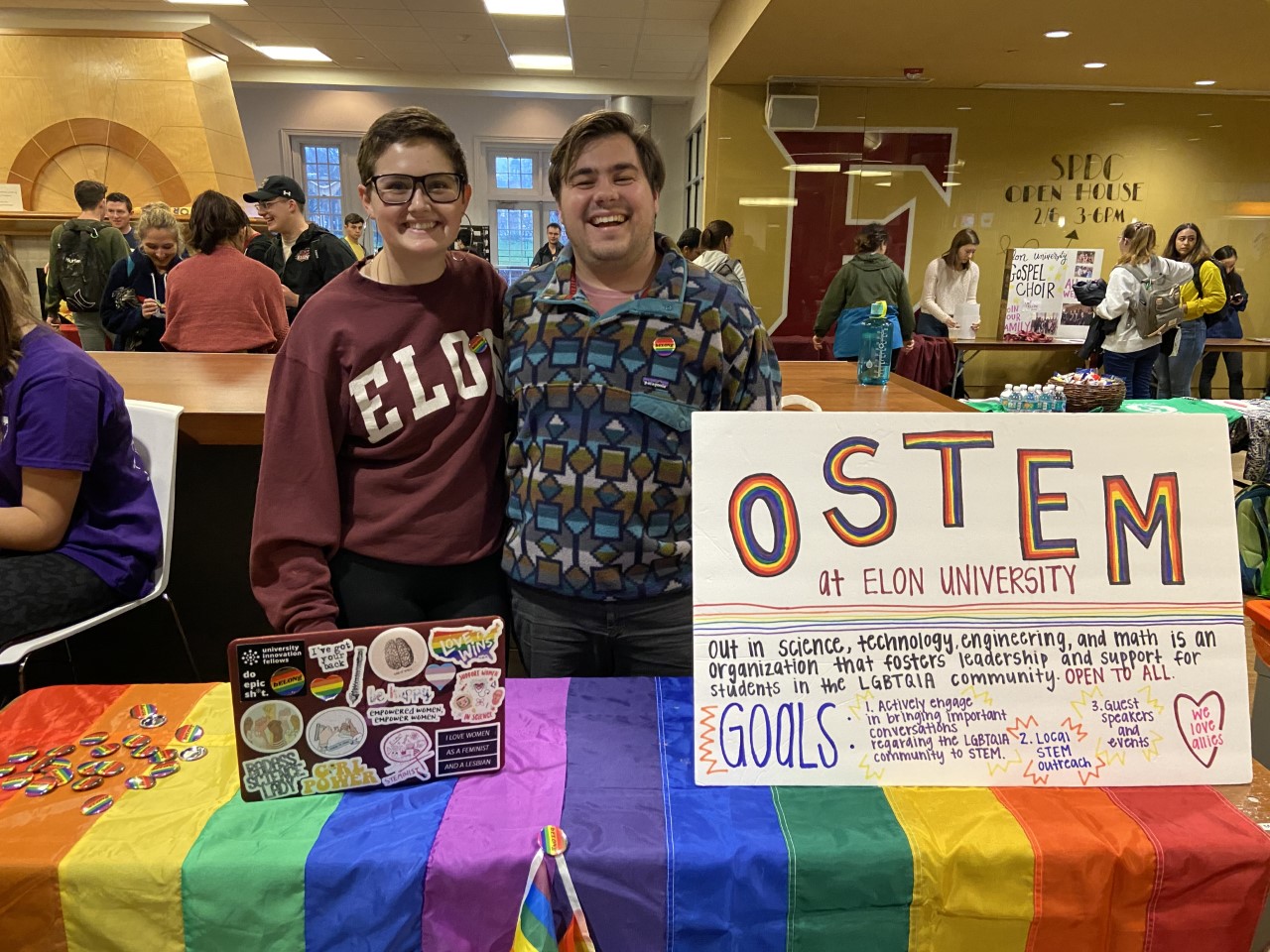Out in Science, Technology, Engineering and Mathematics is a national organization for students and professionals in STEM fields.
Elon University is home to the newest chapter of oSTEM — Out in Science, Technology, Engineering and Mathematics — a professional association for LGBTQIA people in the STEM community.
Seniors Chris Adamik and Sydney Thornton organized the chapter. Professor of Chemistry Karl Sienerth, Assistant Professor of Engineering Richard Blackmon and Archivist and Assistant Librarian Libby Coyner are the chapter’s co-advisers.
They established the chapter to increase the visibility of LGBTQIA communities’ members within Elon’s STEM programs and to support current and future undergraduates who are coming out or defining their sexuality or gender.
“In the same way we stand on the shoulders of past scientists, we stand on the shoulders of classmates who identify (in the community) or become an ally,” Adamik said.
Elon’s chapter is one of four at North Carolina campuses, including Duke University, East Carolina University and the University of North Carolina at Chapel Hill.
Thornton and Adamik began working to bring oSTEM to Elon after a friend of Thornton’s described ECU’s oSTEM chapter. Thornton and her high school friend were at a conference describing their college experiences.
“She talked about oSTEM and the leadership and support on campus,” Thornton said. “She felt like she had that because of oSTEM.”
Thornton returned to Elon enthusiastic about the opportunities a chapter could offer and shared her ideas with Adamik. They began the initial work to found a chapter during spring 2019, with Adamik shouldering most of the responsibility in the fall while Thornton studied abroad.
“Chris is an agent of change,” Thornton said. “He isn’t afraid to bulldoze and do what needs to be done. He said: Let’s start this club.”
Sienerth believes that oSTEM will help support a segment of LGBTQIA students in ways other campus organizations may not be able to. He was encouraged by feedback about chapters at other campuses, where STEM students felt seen and included because of oSTEM.
“For any group that feels excluded for any reason, whether because of sexuality or race, college can be frightening and depressing,” Sienerth said. “As faculty, we want all of our students to feel welcome. oSTEM also allows faculty an opportunity to visibly show our support, which can be really important to students and members of the community.”
oSTEM chapters are required to participate in community outreach at least once a semester. Adamik and Thornton hope Elon’s chapter will become a regular visitor to area high schools for STEM demonstrations. They also hope the chapter will host thought-provoking speakers on campus through the national organization and expanded regional relationships.
“There’s a need for this niche community. Spectrum (a campus-wide LGBTQIA student organization) is great, but it’s difficult to make meetings and get involved when you have to be in the lab at night,” Thornton said.
“Already, we had a first-year student approach us at the spring organization fair, excited about oSTEM,” Thornton said. “I hope it carries on for many years and creates a community we wished we would have had as first-year students.”



